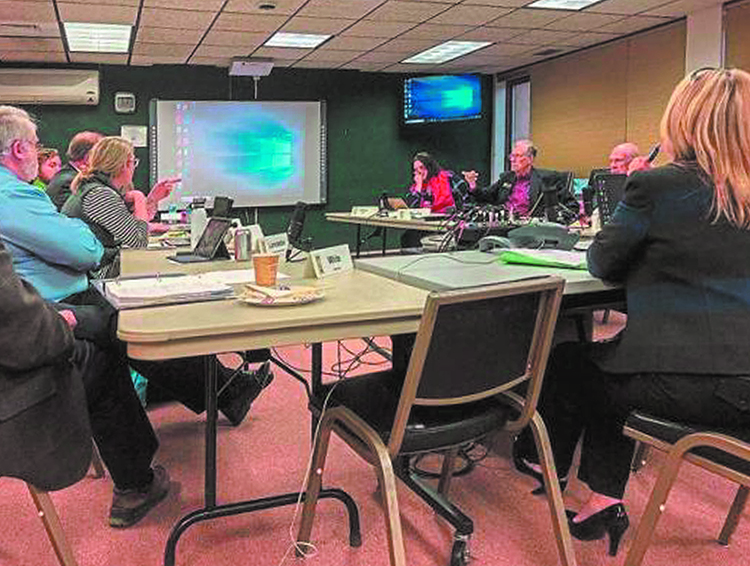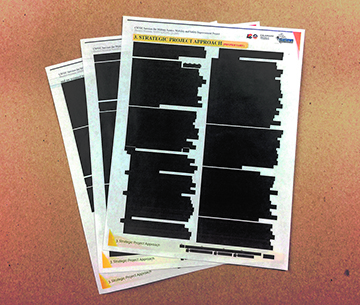In Colorado there has been little notice that the storied multi-billion dollar department in charge of the state’s transportation needs, CDOT, has evolved into little more than a massive piggy bank for former employees who have set up consulting firms to perform the jobs that CDOT used to perform itself.

When the State Auditor did a Performance Audit on CDOT it found that 80 of the 84 consultant contracts it looked at had serious flaws including “unapproved consultants labor rates, contracts without proper approvals and contract terms that did not comply with state requirements.” Yet in 2019 another quarter billion dollars will have been squandered on consultants by CDOT. A total revamping of how CDOT performs, or fails to perform, its basic functions needs to be undertaken.
Even more scandalous is the anti-competitive practices undertaken by CDOT pursuant to a 2013 change in the law whereby instead of requiring low bid for projects over $50,000 they are awarded on the so-called “best value” method of Design Build (DB) or Construction Manager/ General Contractor (CMGC). Since there is no clear public criteria for determining who wins a contract under this system it has become a cesspool of potential corruption. Not surprisingly it has led to only two firms controlling over 80 percent of the market — Kraemer North America (a subsidiary of the Japanese mega firm Obayashi Corporation) and Kiewit Corporation out of Omaha, Nebraska. Experts estimate that the CMGC method is costing over 30 percent more than of what it would cost under low bid competition and in turn costing Colorado taxpayers billions of dollars every year.
The change in the 2013 law was comically called the “Keep Jobs In Colorado Act.” Instead the act has resulted in destroying or badly damaging Colorado firms who previously dominated the competitive bid process. While the Colorado press has largely ignored the scandal at CDOT it has not escaped the purview of federal authorities. The national Engineering News-Record on November 29, 2019, announced that the United States Department of Justice had “launched a multipronged effort to root out bid-rigging, price fixing and other forms of collusion in construction and other sectors on local, state and federal government funded contracts.” There is now a strike force which is comprised of prosecutors in Washington as well as 13 U.S. Attorneys offices in addition to FBI investigators and personal from four inspector general offices.

One of the key U.S. Attorney Offices is that of Colorado. One of the items that possibly brought Colorado onto the radar screen was the purported statement by a key member of CDOT. The high ranked CDOT official allegedly stated that the $20 million contract for repair of the Highway 36 sinkhole should not be competitively low bid because CDOT could not guarantee, under such a method, that it be awarded to their friends at Kraemer.
Federal authorities are apparently aware that bid rigging has expanded far beyond various contractors illegally getting together and now may involve state agencies.
In looking at CDOT one of the key areas of investigation may be “bid suppression” as a form of a collusive bidding scheme. The “Guide to Combating Corruption & Fraud in Development Projects” notes:
“Corrupt government and procurement officials can facilitate the bid suppression efforts (e.g. by disqualifying other legitimate bidders during the bidding process) . . . .”
Many local contracting firms in Colorado are increasingly upset that they are not allowed to take an actual part in bidding for CMGC projects. They are falsely urged to apply to make it seem that the process is legitimate and then excluded by CDOT on criteria that only applies to massive national or international firms like Kraemer and Kiewit.
According to federal sources one of the red lights for a corrupt bidding process is lack of transparency. Under the prior low bid process the exact figures for all parties were available after a contract was awarded so losing bidders could see where they fell short. When an in-state contractor asked CDOT for a copy of the winning bid under a recent CMGC project he was given a document with almost all of the key relevant information redacted by CDOT as shown at right.
Federal authorities are apparently hoping to bring a case of bid suppression that would make national news as to ensure the greatest effect. The indictment of Shoshana Lew or other high CDOT officials regarding the duopoly that has overtaken state construction projects would certainly fit the bill. However, there is no present indication of personal financial benefit by any present CDOT official, which while not necessary in such cases, is still preferred by some federal authorities.

Regardless of federal efforts to clean up uncompetitive bidding in Colorado, it is clear that CMGC method of awarding projects should be suspended in Colorado until a transparent competitive system that will save Colorado taxpayers billions of dollars is undertaken. That and tight restrictions on consulting contracts with CDOT are both long overdue and badly needed.
- Editorial Board

